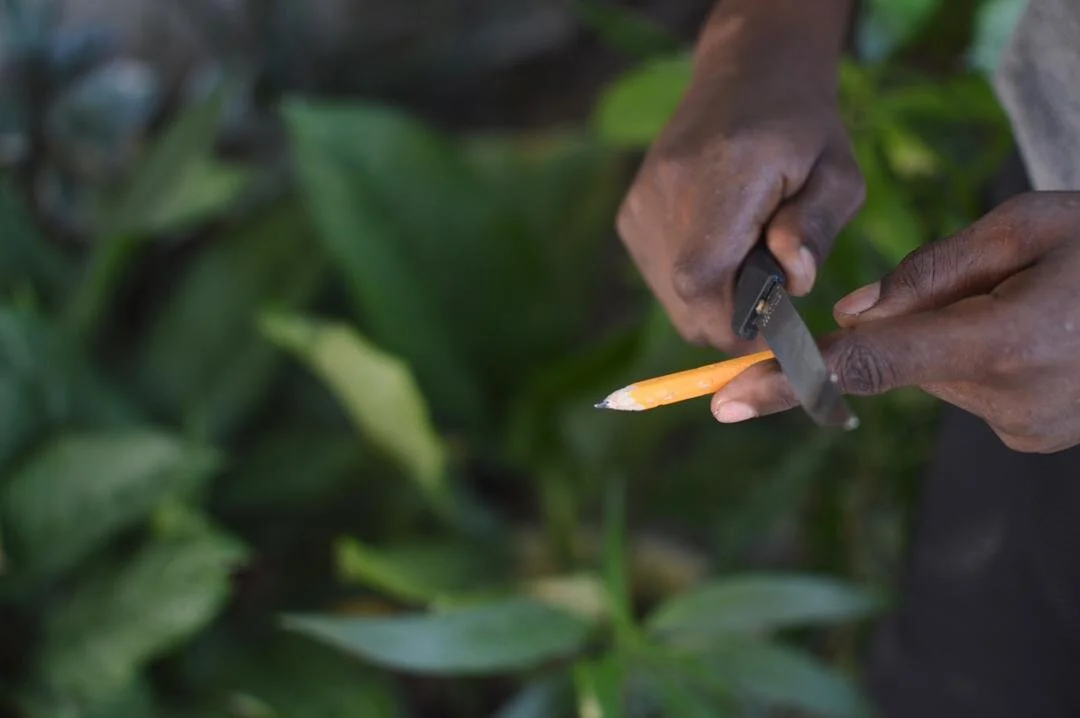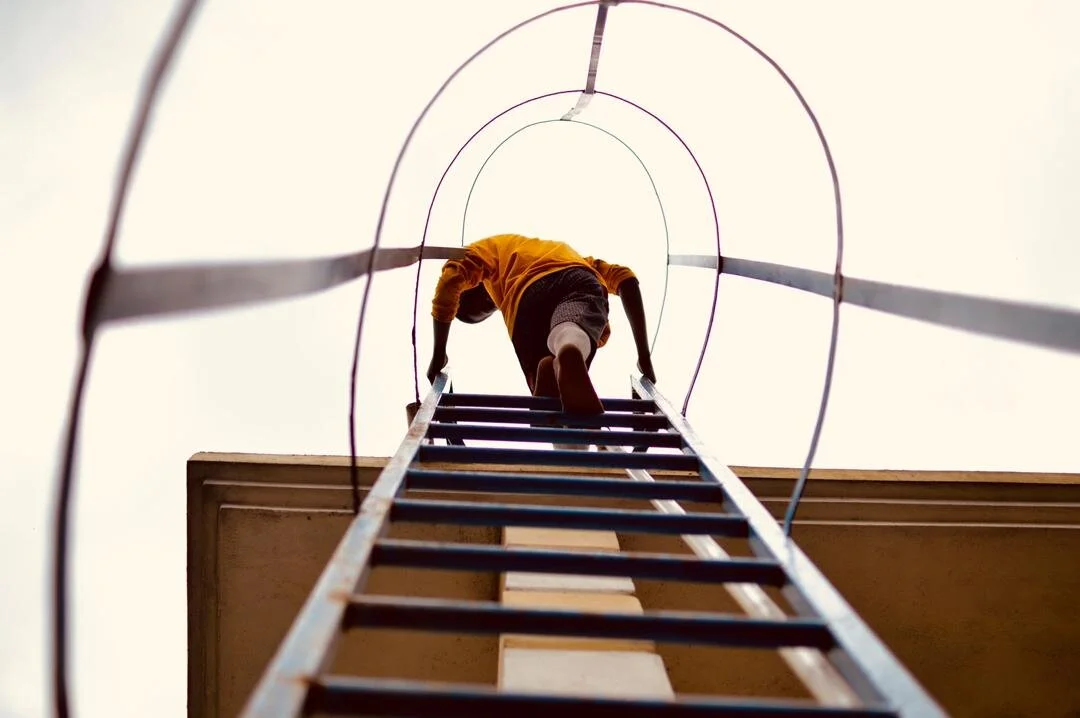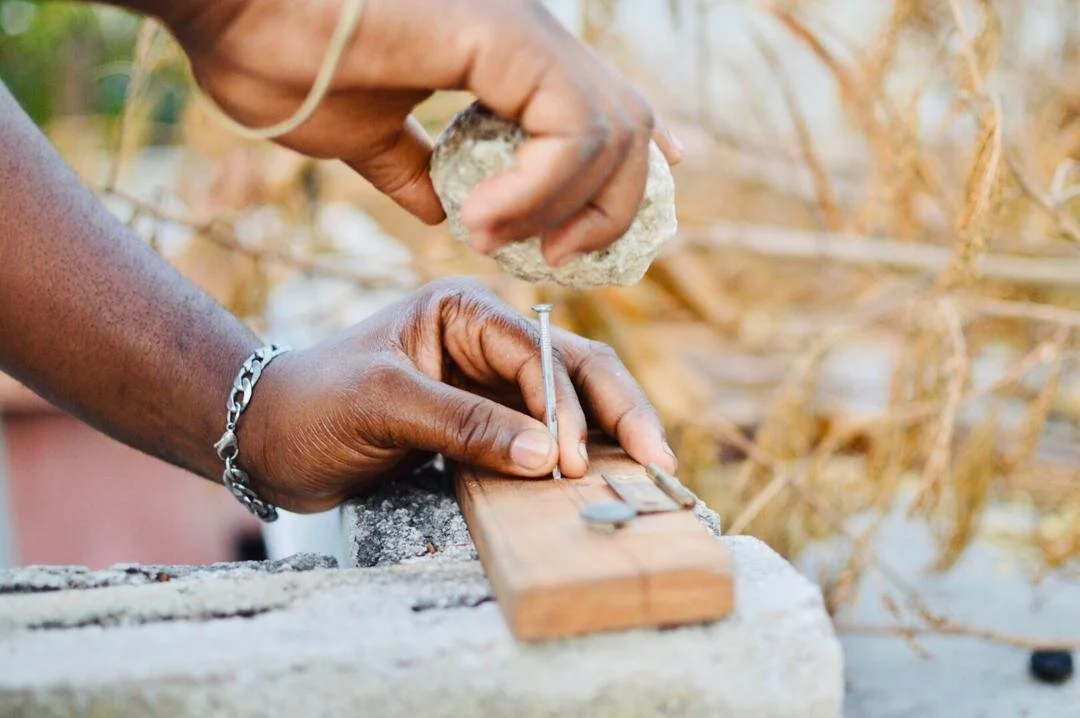This proverb could be literally translated as: “Because of bean, little rock tastes oil.”
Bèf plizyè mèt mouri grangou
Nen pran kou, je kouri dlo
A literal translation for the proverb would be “Nose is hit. Water flows through eyes.”
Community is important for Haitian people. In some areas, people know everything about each other such as names, siblings, positions, where they are from, where they have worked, what they have accomplished, etc.
People care about what is happening in others' lives, too. Good achievements make them proud of others, while disappointments and setbacks are painful for them, too.
Haitians say this proverb to show how what happened to someone affects this person’s parents, family, friends, and community. Sometimes something happens to somebody, and the consequences are painful for his/her entire circle.
We are all part of a family and a community. We cannot prevent people from loving us and caring for us. What we do and what happens to us will impact others in many ways.
So let us be wise in our decisions - thinking about others.
Philippians 2:4 tells us:
Let each of you look not only to his own interests, but also to the interests of others.
Limen lanp pou avèg, se gaspiye gaz
This proverb could be literally translated: “To light a lamp for a blind person is to waste gas.”
We can not say how important it is for people to have light. Here in Haiti, electric power is inconsistent. We often do not have current at night. That can make life difficult. When there is no electricity and no other battery lights, people use kerosene in lamps to have light so that they can keep on doing their activities or just be comfortable. But whether it is day or night, dark or bright, clarity or obscurity, that doesn’t make any difference to the blind person. He/she still cannot see. Having light just does not better his situation.
Haitians say this proverb to represent the situation of someone advising stubborn and arrogant people. A person who will not listen to instruction will do what they plan to do whether it is wrong or right, even though we try to persuade them not to do it. So it is a waste of time and energy trying to help them see the light.
Proverbs 27:12 tells us that a prudent person foresees danger and takes precautions, while the simpleton goes blindly on and suffers the consequences. Let us be wise and open to learning and ready to give up an endeavor/action/idea if it reveals itself to be wrong or erroneous.
Joumou pa donnen kalbas
Sonje lapli ki te leve mayi w!
The literal translation of this proverb would be: "Remember the rain that sprouts your corn."
There is a rainy season and a dry season in Haiti. Many farmers do not have a water source close by, so they rely on the rain to do the job of watering their gardens.
The first rain of the season is especially important because farmers prepare their land and their seeds, and their seeds need water in order to grow. Often farmers they are growing corn because it’s a crop that does well in Haiti.
Haitians tell this proverb to remind others to be grateful for help that was given at the beginning that was vital to their future success. It is important to give credit to those who deserve it.
It is a strength when someone is able to show gratitude. Nobody gets to their destination alone. They should remember the help, advice and support they received from others.
So please (si’l vou plè): "Sonje lapli ki te leve mayi w! "
Lave men, seye atè
Lave men, seye atè
This Haitian proverb could be literally translated into English like this: "Wash hands, and dry them on the ground."
One of the first things kids are taught, here in Haiti, is washing hands. This is not only a sign of hygiene but also a symbol of cleanliness.. During their lives, Haitians keep this habit, though some tend not to do it as often as they should because of their activities that do not really give them space to do so.
People sometimes plan on doing something. They take time to accomplish and fulfill every single step. But it happens that they forget or have neglected something little but vital for the success of the initiative, and it fails. Haitians then say this proverb to tell that it is a big waste.
They also say this proverb to express frustrations or sympathize with someone/a group/an organization that have made a lot of effort, used a lot of resources on something, but failed to succeed in a project.
We should be careful and process every single detail/step of any project or initiative because any little negligence/miss could be fatal for its success.
Be diligent and meticulous to avoid "lave men, seye atè."
Malè pa gen klaksòn
Chita pa bay
Chita pa bay
Literally, the English translation this proverb would be: "Sitting down doesn't give/profit".
Haiti is a country where people have to work, to go for what they want in order to have it. No one is thinking about or working towards your happiness, well-being or your future except you yourself. The society is built on entrepreneurship and hard work.
We are aware that time moves quickly. We all have goals and projects. There are some goals that need steps or cumulative little accomplishments to be accomplished. We can not stay only on planning or sit down to only contemplate/enjoy a middle success neither without taking any actions to accomplish the goal.
Haitians say this proverb to teach lazy people or those that tend to be lazy the reality of the Haitian society and life. If you are in movement, God might direct your steps so that you find wisdom or be at the right place and meet the right people to help you accomplish something for your life. But while you are sitting down, you are not productive. And this is bad for someone that lives in this special country named Haiti.
People also say this proverb when they are about to go back to work/business after having a moment of rest. They remind themselves and teach others that laziness does not prosper people and easy does not accomplish great.
Any time you see a lazy people or you tend to be lazy, remember that "Chita pa bay."
Fòk ou konn la pou w al la
Maladi pa konn vanyan
Maladi pa konn vanyan
Literally, its English translation would be: "Illness does not know the valiant.”
Haitians are courageous people. They work hard for their very lives and daily food. For them, hard work is normal, and it is the only way. This mindset creates in them a resilience both physically and mentally.
Some people reach a point where they think they are tough enough to fight everything. They forget they are vulnerable. Some ignore rest, neglect feeding themselves, and become careless about threats of illness. They may say they believe that a pending physical threat like the pandemic is real, but they feel they are strong nad will avoid it.
Therefore, they do not take precautions and become sick. Sometimes sickness starts small, but it spreads quickly and can do harm to the strongest of people.
Haitians say this proverb to help those others see reality and be aware of the fact that everyone is susceptible to get sick if he/she does not take appropriate measures and precautions.
In this particular period of Covid-19, this is a proverb that deserves our intention. We should consider applying the measures, take the precautions no matter our sex, age, skin color, religion, blood type or how strong we think we are because
"Maladi pa konn vanyan.”
Se mèt kò ki veye kò
Atansyon pa kapon
Bat men ankouraje chen
Bat men ankouraje chen.
Literally it is "Clapping hands encourages dogs."
People have dogs for many purposes depending on their activities, profession, or social rank. For example, farmers want them to take care of their farm and sometimes help them pursue domestic other animals when they want to catch them. Dogs help hunters track and catch their hunt.
People often clap their hands when dogs are in action to motivate them.
Haitians say this proverb when they want to encourage someone who is doing a good job. Sometimes, we do not have the means to pay someone for what he/she is doing or a reward to congratulate his effort. Therefore, we just offer what we have even though it is little - like water for drinking or bathing, a little food, some help, or even kind words. It is true that these are insignificant quantitatively, but we know that they could be a mental booster to the worker showing him/her that we care.
The little we do may not actually meet their needs. We can not go through the rough roads and be in the rough time with them. But what we can do acts like a fuel to their engine.
Never stay indifferent towards someone you know is doing a good job. Because, even little can encourage and boost his/her work and intention.
Bat men ankouraje chen
Twòp chenn gate revèy
Twòp chenn gate revèy
"Too many chains spoil clocks" is the literal translation for this proverb.
Clocks are very important for families. For some people, it is just a decoration for their rooms. It helps some other people be aware of the time so that they can balance their daily activities.
There were some big clocks that rang each hour and every one had a special sound. That is to say the sound for noon was different from 1:00 clock, and so on. For some other clocks, people had to use a chain to program them. The more you calibrated it, the better it became. But sometimes, the clocks broke up because of using the chain too much.
Haitians use this proverb to warn people that tend to overdo, overcare or are too meticulous. Everything has a limit. It is alright to look for a certain limit of perfection. But sometimes we complicate things and even damage them by putting what does not have to be present on it. They also say this proverb when people that have lots of opportunities/means/connections create their own unhappiness/adversity by doing excess or abusing their freedom and means.
Let us keep things simple and take advantage of what we have without any abuse.
Lè w pa gen manman, ou tete grann by Vorb Charles and Becky Graves
Rayi chen, di dan l blan by Vorb Charles
Pwomès se dèt by Vorb Charles
Pwomès se dèt.
The literal English translation would be: “Promise is debt.”
The community mindset is largely accepted in Haiti. People enjoy serving others and sharing things they have. Some people even promise some kind of service to others or some sort of things that they know they will have.
Once they are promised something, people expect to receive what they were promised. The expectation is the same as a payment or a salary. If they do not receive it, some will ask for it, but some will just take you as a deceiver and not tell you anything.
Haitians say this proverb to remind people to be faithful and keep their word. It is not a good image for us not to do what we promise to do. The proverb is also a warning to those who like to talk without thinking, to promise without considering their availability, means, or the possibility for that to actually happen. It is better to do something without a prior promise than to not do something that was promised.
We should remind ourselves that we have to do/give anything we promise. And any time someone promises to do something for you, or promise to give you something, when the time arrives and he/she does not keep his/her word, go ask it to him/her reminding him/her that
“Pwomès se dèt”
Regleman pa gate zanmi by Vorb Charles
Regleman pa gate zanmi
In English, it would be : " Asking for account does not break friendship."
Friendship is something valuable in Haitian society and other parts of the world. Trust, respect, love, appreciation and lots of great values are involved. Part of people’s happiness depends on that.
Many people like to associate their means (money, and other resources) to create companies and do businesses. Some people have their friend as partner; some do not. And giving account (explanation, clarifications...) is part of business life. There is a time we should put everything out of the basket so that partners can see, count, touch, or observe them.
Haitians discuss prices at the market. The seller asks for a price, and the buyer gives a price. When they come into an agreement, the buyer pays, and the seller receives the money and gives back change if it is needed. The buyer is asked to count the change to see if the amount is accurate even though the seller is his/her friend.
Some sellers leave their products under the care of another seller that is a friend. When they come back, they are reported of all the transactions regardless of the trust they have on their friends.
People say this proverb to express the fact that to double check a number with a friend that is our partner, asking for clarifications or question a fact about a transaction does mean we do not trust our friend, but this will strengthen the friendship.
So anytime you do business with a friend, when you open a box of product he/she hands you, when you open the envelope to check the accuracy of the sum written on it..., remember to say : " Regleman pa gate zanmi" just to avoid any further disagreement but not because you do not trust him/her.
Dèyè mòn, gen mòn!
While hiking in Furcy this summer, our Director of Economic Development, Vorb Charles, took this beautiful photo which highlights the beauty of his homeland. The following are his personal reflections:
Dèyè mòn, gen mòn!
This is an Haitian Creole proverb that could be literally translated: “Behind mountains, there are mountains.” Haiti has a lot of hills and mountains. Sometimes, you see a high one and you think there is no other behind but when you past it, you see many others and sometimes higher and stronger.
It expresses the idea of humility and challenge. For those who think they are all powerful, they are the smartest, the wealthiest, the strongest, the most beautiful… they should remember that there is someone bigger, even more powerful, smarter, stronger, wealthier, more beautiful than them. Maybe you do not see him/her yet, but he/she can challenge and defeat you.
It is the same idea for David and Goliath. Goliath thought he was the strongest, the most talented for war. But he was defeated and put to death by someone nobody could imagine being stronger and more talented for war than him.
Let’s be humble and thankful for what God has given us. Let’s use our wealth, talent, knowledge, and faith to serve others and not to oppress them because
Dèyè mòn, gen mòn




















